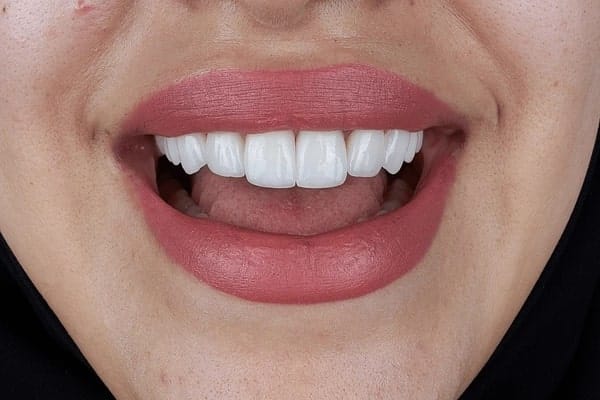A small chipped tooth might not always feel like a dental emergency, especially if it’s painless and doesn’t affect your smile. But can it actually smooth out on its own? What signs should you watch for? And when should you seek dental treatment? Let’s explore everything you need to know about minor dental chips and what you can expect if one happens to you.
What Is Considered a Small Chipped Tooth?
A small chipped tooth typically refers to a minor dental fracture or superficial chip that only affects the outer enamel layer. These chips often occur along the edge, corner, or surface of the tooth and are usually the result of:
- Biting hard foods (such as ice, hard lollies, or nuts)
- Accidental trauma or a fall
- Using teeth as tools
- Teeth grinding (also called bruxism)
- Enamel wear due to erosion or previous dental issues
This kind of damage is most common in incisors or front teeth, as they are more vulnerable to impact and force.
Can Enamel Repair or Smooth Itself Over Time?
To a limited degree, yes. Tooth enamel is incredibly strong, but it does not regenerate like skin or bone. If a tiny chip is barely noticeable and causes no discomfort, the rough edges may wear down naturally over time due to normal chewing and contact with other teeth.
However, this natural smoothing process is very slow and not guaranteed. Teeth that remain sharp or jagged, or that cause discomfort, will not improve on their own.
What Are the Attributes of a Small Tooth Chip?
| Attribute | Details |
| Tooth type | Incisor, molar, canine |
| Chip size | Tiny, small, minor, superficial |
| Chip Location | Front, edge, corner, chewing surface |
| Pain level | None, mild, sharp when chewing or exposed to cold |
| Enamel involvement | Surface-level only or deeper into dentin |
| Cause | Trauma, hard food, grinding, accident |
| Appearance | Visible notch, rough edge, slight discolouration |
| Treatment needed | Polishing, bonding, or monitoring |
What Are the Signs That a Chipped Tooth Is Minor?
A small chip may require no immediate treatment if:
- You don’t feel pain or sensitivity
- The edge feels mostly smooth
- The chip is not expanding or worsening
- It doesn’t interfere with chewing or your bite
- It’s purely cosmetic and you’re not concerned about appearance
Still, it’s always worth having a dentist examine it, even if just for peace of mind.
When Should You Seek Dental Advice for a Chipped Tooth?
While small chips can seem insignificant, it’s important to know when to take action. Book a dental visit if you experience:
- Tooth sensitivity to hot, cold, or sweet foods
- Sharp edges that irritate your tongue or lips
- A visible crack or line in the enamel
- Changes in the size or shape of the chip
- Chips affecting the front teeth and smile aesthetics
Your dentist may recommend treatment such as polishing, bonding, or veneers depending on the extent and __cpLocation of the damage.
What Are the Common Causes of Small Tooth Chips?
Chipping can occur in everyday situations, including:
- Eating hard substances (nuts, bones, popcorn kernels)
- Using your teeth to open packages
- Accidental falls or knocks
- Night-time teeth grinding (bruxism)
- Enamel erosion from acidic food or drinks
- Long-term dental wear and tear
Preventative dental care can help reduce the risk of future chips, especially if the cause is structural or habitual.
What Are the Treatment Options for Minor Chips?
Here are the common treatments for a small chipped tooth:
- Polishing or smoothing: For minor enamel chips that can be gently rounded off
- Dental bonding: A composite resin is used to restore the tooth’s shape and look
- Veneers: A porcelain layer applied for cosmetic enhancement (used mainly for front teeth)
- Monitoring: If the chip causes no pain or aesthetic issue, your dentist may choose to simply observe it at future check-ups
Can Natural Smoothing Compare to Professional Dental Treatment?
Let’s compare the two approaches:
| Factor | Natural Smoothing | Professional Treatment |
| Time frame | Weeks to months | Immediate improvement |
| Pain relief | None if pain-free | Yes, if sensitivity is present |
| Aesthetic benefit | Limited | High |
| Risk of worsening | Possible | Minimal |
| Long-term outcome | Uncertain | Durable and secure |
While some enamel chips may wear down slightly, professional care ensures comfort, protection, and cosmetic appeal.
Is It Safe to Ignore a Small Chipped Tooth?
Although it might seem harmless, ignoring a chipped tooth can lead to:
- Enamel weakening, making the tooth more prone to further damage
- Exposure of dentin, increasing sensitivity and decay risk
- Changes in bite if the chip alters your chewing surface
- Gum irritation or tongue laceration from rough edges
Early assessment and simple treatment can prevent complications later.
Looking for a Gentle Dental Team to Assess Your Chip?
At Palm Beach Dental, we understand that even a small dental concern can cause stress or uncertainty. Our team is committed to providing gentle, precise care for all types of tooth damage, from minor chips to more complex restorations.
We use the latest technology and techniques to evaluate enamel damage and offer effective solutions like bonding, contouring, or conservative polishing. Our welcoming clinic ensures you feel relaxed while we address your concerns quickly and thoroughly.
Frequently Asked Questions (FAQs)
1. Can a chipped tooth repair itself over time?
To a small extent, very minor chips may wear smoother over time. However, teeth cannot regrow enamel, so full repair requires dental treatment.
2. Is it okay to leave a small chipped tooth untreated?
If it’s completely painless, smooth, and cosmetic only, monitoring may be safe. But it’s best to get it checked by a Dentist near you.
3. Will a dentist always need to fill or fix a small chip?
Not always. Dentists may choose to smooth, monitor, or apply bonding depending on the size, location, and symptoms.
4. Why does my chipped tooth feel sharp but doesn’t hurt?
The chip likely only affects enamel and hasn’t reached the sensitive dentin. However, sharp edges can irritate soft tissues.
5. What happens if the chipped area starts to feel sensitive later?
Sensitivity suggests deeper involvement. See your dentist promptly for assessment and possible bonding or coverage.
6. Can small chips happen from grinding teeth at night?
Yes, teeth grinding (bruxism) is a major cause of small chips and cracks, especially on biting surfaces. A night guard may help prevent this.



